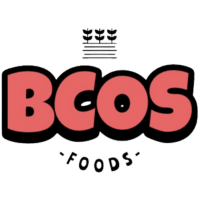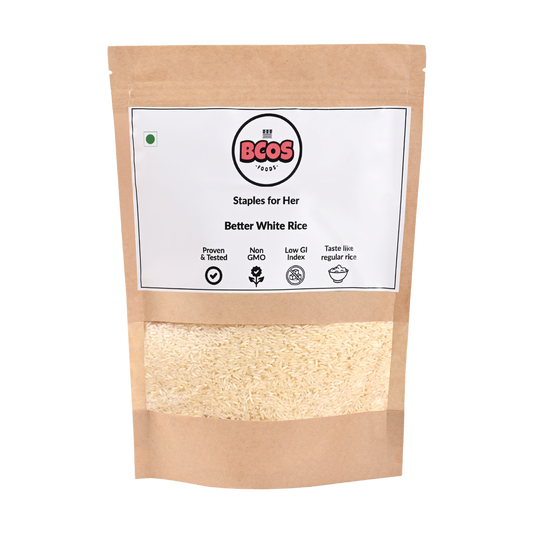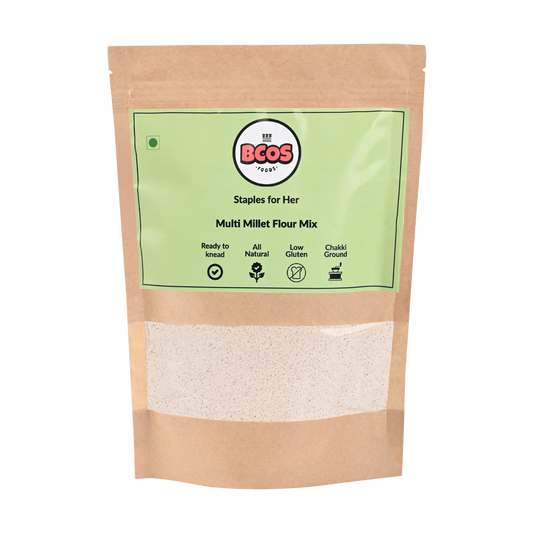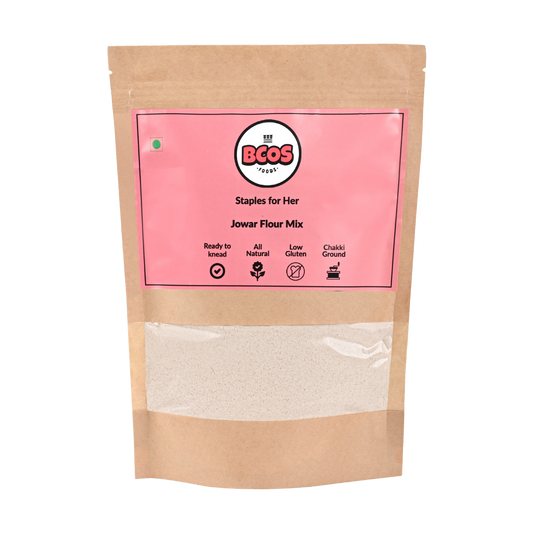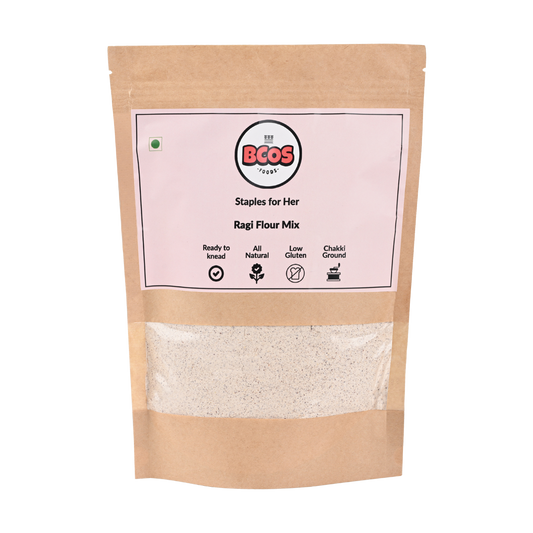As if irregular periods, acne, and hair problems weren’t enough, bloating is another surprising, yet common, symptom of polycystic ovary syndrome (PCOS), a hormonal disorder affecting up to 1 in 5 women in India. You may be tempted to try various probiotics, diets, or tonics for your bloating; however, this article will explain how to identify and treat PCOS bloating by finding your true root cause.
If you have PCOS, the root cause of your bloating may be due to:
1. Dysbiosis, or an imbalance of gut bacteria;

Dysbiosis occurs when you have an imbalance of bacteria in your gut. You may have too much bad bacteria, not enough good bacteria, and/or not enough diversity of bacteria. Unfortunately, women with PCOS are more likely to suffer from dysbiosis than women without PCOS.
Dysbiosis is one major root cause of abdominal bloating in PCOS. Dysbiosis may also worsen other PCOS symptoms like acne, unwanted hair growth or hair loss, and hormonal imbalances.
2. Irregular periods without ovulation;

In a healthy menstrual cycle, your estrogen and progesterone levels change throughout the month. Estrogen levels slowly rise and peak right before ovulation. After ovulation, estrogen levels drop and progesterone takes over. If your egg is not fertilized for pregnancy, progesterone levels eventually drop to trigger the beginning of your period bleed.
However, many women with PCOS have irregular cycles and do not ovulate or bleed each month. Without ovulation, your estrogen levels may be constantly elevated because you do not experience an opposing rise in progesterone. This is known as estrogen dominance, or an excess amount of estrogen in relation to progesterone. Estrogen dominance may also contribute to bloating in PCOS.
3. PCOS Medications

Conventional medications commonly used to manage PCOS symptoms can cause bloating as a side effect.
Metformin is a prescription medication that lowers insulin and fasting blood sugar levels. It is often prescribed to treat insulin resistance in PCOS. A benefit of metformin is that it does attempt to address insulin resistance as an underlying root cause, which is why some individuals experience positive results while taking it. However, metformin commonly causes symptoms of GI upset like nausea, diarrhea, bloating, and gas. These side effects may be due to metformin’s influence on the gut microbiome, and some studies suggest this drug may also cause dysbiosis.
The birth control pill is also commonly prescribed to women with PCOS to manage symptoms of acne, irregular periods, and unwanted hair growth. Unfortunately, many women find that the pill commonly contributes to abdominal bloating among other side effects.
How to Treat PCOS Bloating
A healthy menstrual cycle with regular ovulation can reduce bloating by supporting the natural balance of estrogen and progesterone. One way to encourage ovulation is by balancing your blood sugar levels with healthy diet plan and lifestyle. Here are a few tips to get you started.
- Include a real food source of protein, fat, and carb with each meal and snack (see below image for ideas).
- Limit foods high in added sugar, like sweetened beverages, cookies/candy, and other grain-based desserts.
- Aim for 7-8 hours of sleep each night, and reduce sleep disruptors like caffeine or alcohol close to bedtime.
Note: The pill does not actually make your cycle “regular” as often advertised. Rather, it provides synthetic hormones that prevent ovulation completely. However, balancing your blood sugar levels is still beneficial whether or not you are taking the birth control pill.
Bloating and PCOS: Key Takeaways
If you have PCOS, the root cause of your bloating may be due to :
- dysbiosis, or an imbalance of gut bacteria;
- irregular periods without ovulation;
- and medications used to manage PCOS symptoms, like metformin or the pill.
You can encourage regular ovulation and treat dysbiosis by eating wholesome foods that are low in added sugar and rich in protein, healthy fats, and fiber. BCOS Foods ready to knead flours are rich in protien, calcium, and fiber. Checkout our tasty millet flour staples to take control of your bloating now!
